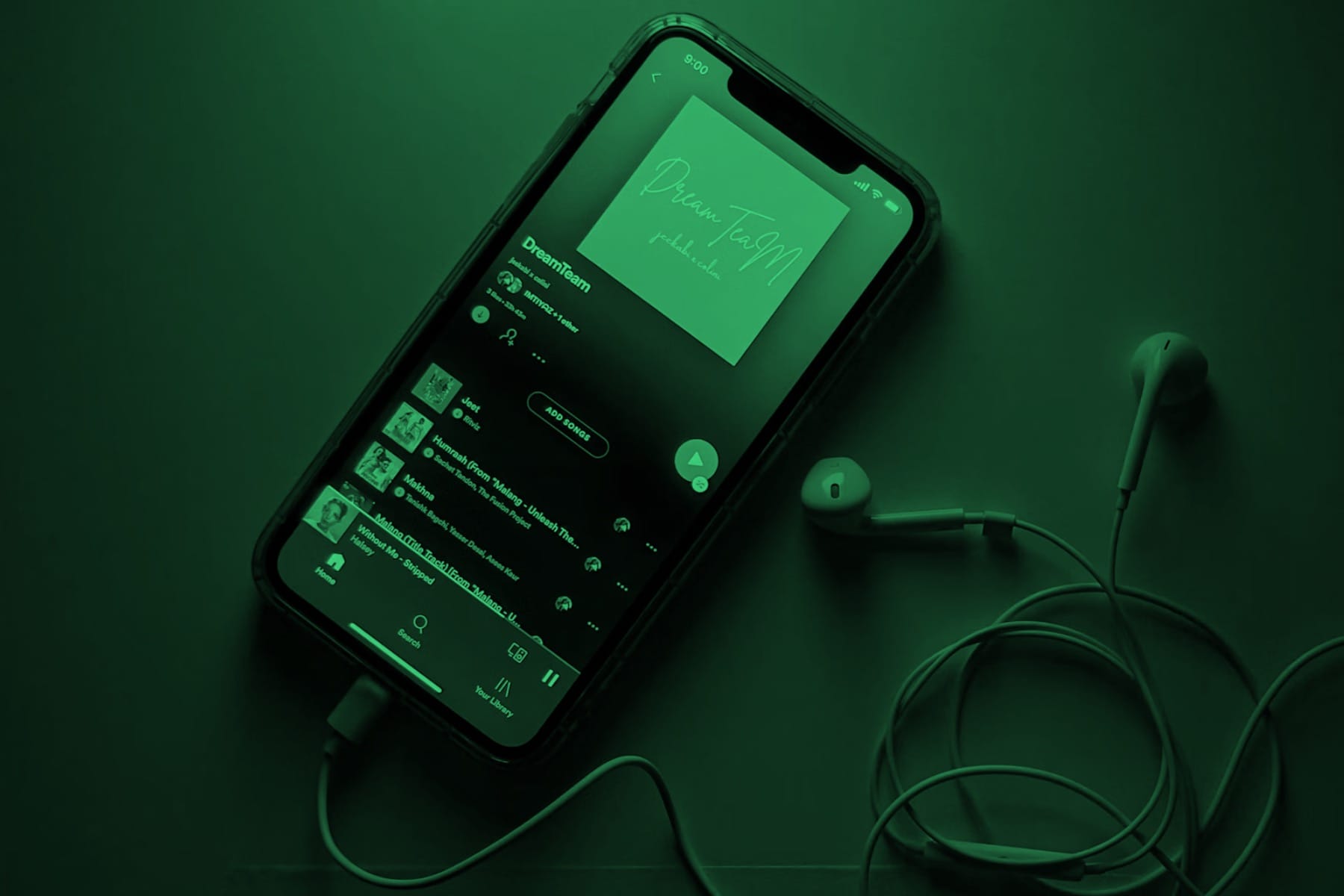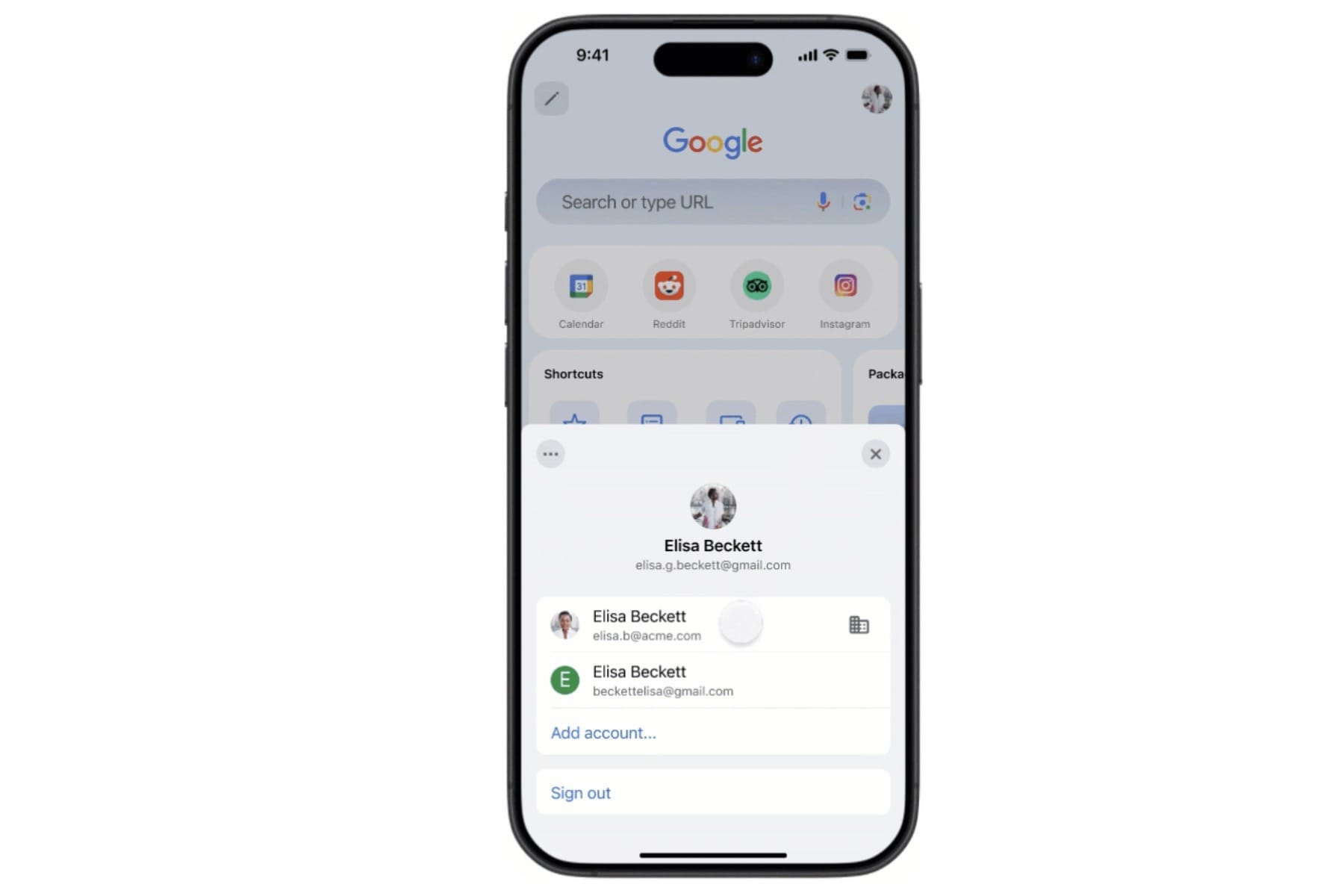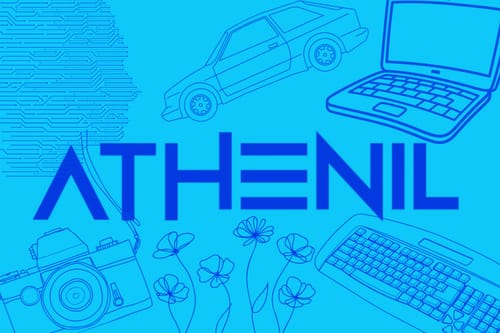Spotify has a reputation for not paying artists fairly. Its CEO is funding weapons companies that kill children. It even created fake singers to avoid paying humans. Now, it is showing AI songs in the name of artists that are long dead.
In related news, AI doomer-turned-hopeful billionaire, Elon Musk, opened a snazzy diner with futuristic vibes, chargers, and a theater. AI is now winning Maths Olympiads, something I could never crack. And Microsoft's flaw was targeted by China-linked hackers. Yet Again!
Here's your tech tea for the day!
Spotify is adding shitty AI songs in the name of dead artists

Spotify is facing criticism for hosting new, AI-generated songs on the official pages of deceased artists, seemingly without the permission of their estates or record labels.
Blaze Foley, a country singer who died in 1989, recently had an AI-generated track titled "Together" appear on his Spotify page, accompanied by an AI image that bears no resemblance to him. Craig McDonald of Lost Art Records, Foley's label, confirmed the song is not authentic Foley material, calling it "AI schlock bot."
This incident highlights a significant concern within the music industry regarding the unauthorized use of AI to generate content and impersonate artists, raising questions about Spotify's content moderation and security protocols.
- The AI-generated songs, including those attributed to Blaze Foley and Guy Clark, reportedly bear a copyright mark from a company called "Syntax Error."
- Spotify has stated that the content was uploaded via SoundOn, a music distributor owned by TikTok, and has since removed the flagged songs for violating its "Deceptive Content policy."
- McDonald suggests that Spotify implement a system requiring official page owners to approve any new tracks before they appear on an artist's profile to prevent such fraudulent uploads.
Read the full story at 404 Media.
Tesla opens futuristic diner with food, theater, robots, and chargers

Tesla has officially opened its highly anticipated Supercharger Diner in Los Angeles, a project seven years in the making that combines electric vehicle charging with a retro-futuristic dining and entertainment experience.
This 80-Supercharger lot features two large movie screens and a full-service, 24/7 diner offering locally sourced food, welcoming both Tesla owners and the general public.
Tesla Diner is retro-futuristic diner & drive-in charging experience all wrapped into one
— Tesla (@Tesla) July 22, 2025
80 V4 Supercharger stalls are open to all NACS-compatible EVs, making it the largest urban Supercharger in the world pic.twitter.com/CKiNtpqm6Y
The opening was met with immense enthusiasm, with some patrons reportedly waiting up to 13 hours to be among the first to experience this unique concept, which aligns with Elon Musk's 2018 vision of a 50s-era drive-in diner.
Tesla Diner & Supercharger in Hollywood, LA
— Tesla (@Tesla) July 21, 2025
Open 24/7, starting now pic.twitter.com/nISRNoV89Y
- The LA Supercharger Diner is not exclusive to Tesla owners; anyone can visit the diner and movie theater with 66-foot LED megascreens.
- The diner aims to be the first of many, with Elon Musk stating plans to establish similar experiences in major cities worldwide and at Supercharger sites along long-distance routes.
- The menu features classic American diner fare, with some items served in quirky Cybertruck-shaped boxes.
Read more about it at Tesla.
AI is now kicking ass and winning gold at Maths Olympiads

In a significant stride for artificial intelligence, both Google's Gemini Deep Think and OpenAI's experimental models have achieved gold medals at the prestigious International Mathematical Olympiad (IMO).
This marks a historic first, as AI systems have now officially surpassed the gold-medal threshold in this highly competitive event for high-school students, solving five out of six complex problems.
This breakthrough, achieved using general-purpose "reasoning" models that process mathematical concepts in natural language, signals a major leap in AI's ability to tackle sophisticated problems, potentially paving the way for AI-mathematician collaborations on unsolved research.
Official results are in - Gemini achieved gold-medal level in the International Mathematical Olympiad! 🏆 An advanced version was able to solve 5 out of 6 problems. Incredible progress - huge congrats to @lmthang and the team! https://t.co/pp9bXF7rVj
— Demis Hassabis (@demishassabis) July 21, 2025
- Both Google's and OpenAI's models utilized natural language processing, a departure from previous AI approaches that relied on formal languages and extensive computation.
- OpenAI's achievement involved scaling up "test-time compute" by allowing the model to "think" for longer and deploying parallel computing power.
- The IMO judges officially certified Google's results, with both companies asked to publish their findings, though OpenAI released theirs slightly earlier.
Read more about it at Google DeepMind.
Microsoft (and its government clients) hit hard by Chinese hackers...again!

A series of widespread cyberattacks targeting organizations using Microsoft's SharePoint collaboration software have been linked to hackers associated with the Chinese government. These breaches, affecting entities in the U.S. and other countries, exploit a critical security flaw in on-premises SharePoint versions.
While Microsoft has released patches to address the vulnerability, cybersecurity experts warn that the initial attacks allowed hackers to steal cryptographic keys, potentially enabling them to maintain access and launch further intrusions.
The quick exploitation of this "zero-day" vulnerability points to sophisticated actors, with some researchers suggesting connections to the well-known Chinese state-sponsored hacking group, Silk Typhoon.
- The compromised SharePoint systems were observed connecting to IP addresses within China, according to federal investigators.
- Only customer-hosted versions of SharePoint are vulnerable; cloud-based SharePoint Online is not affected.
- Affected organizations are advised to not only install patches but also change digital keys, apply anti-malware, and hunt for existing breaches.
Read more about it at The Washington Post.
iPhones can finally switch work and personal profiles in Chrome

Google has rolled out a much-anticipated feature for iOS users of its Chrome browser, enabling seamless switching between personal and work Google accounts. Previously, this process was cumbersome, requiring users to repeatedly sign in and out.
This new functionality addresses the growing trend of employees using personal devices for work by providing strict data separation, ensuring that browsing history, tabs, and passwords from managed work accounts remain distinct from personal browsing data.
Google states this enhancement is beneficial for both end-users and IT administrators, simplifying the experience while bolstering security.

- When switching to a managed account, an onboarding screen will explain the data separation and how the organization handles Browse data.
- Organizations can control how existing Browse data is handled when a user first signs into a managed account.
- Users will receive a notification when they enter a managed Browse experience, ensuring transparency about data control.
Read more about it at Google.

